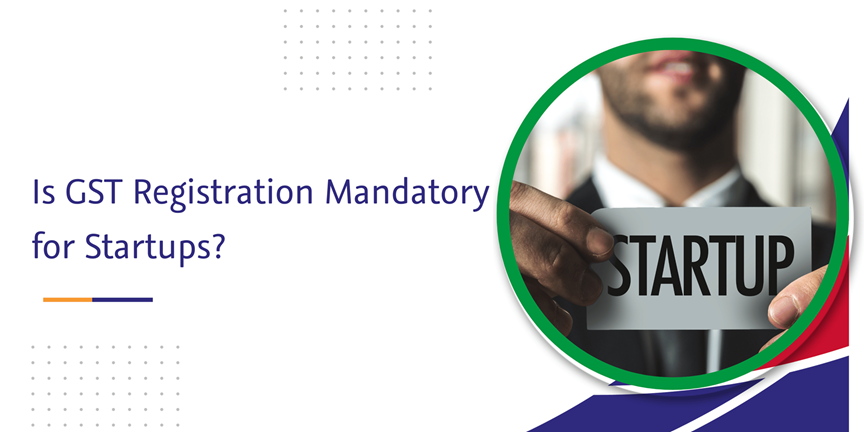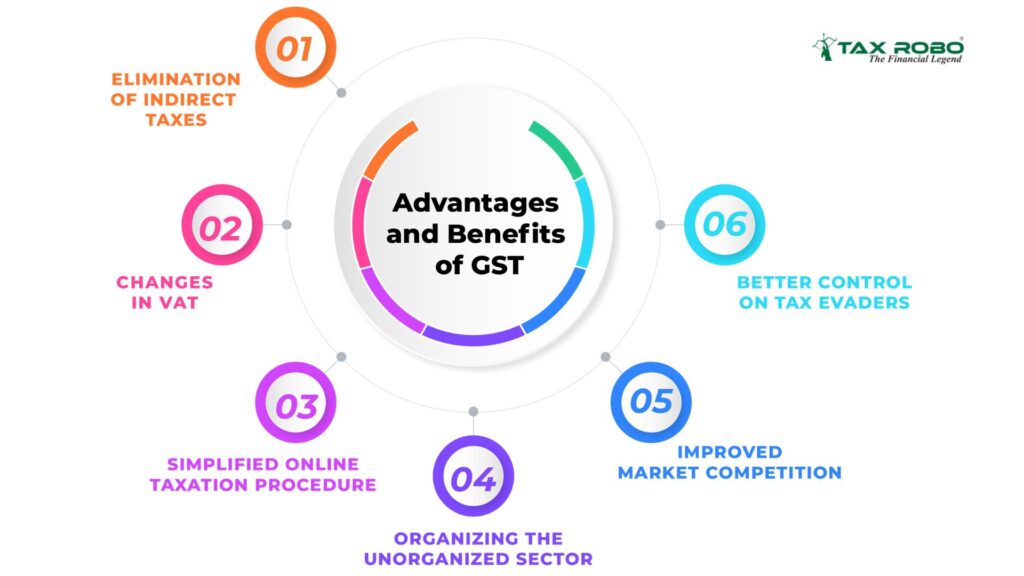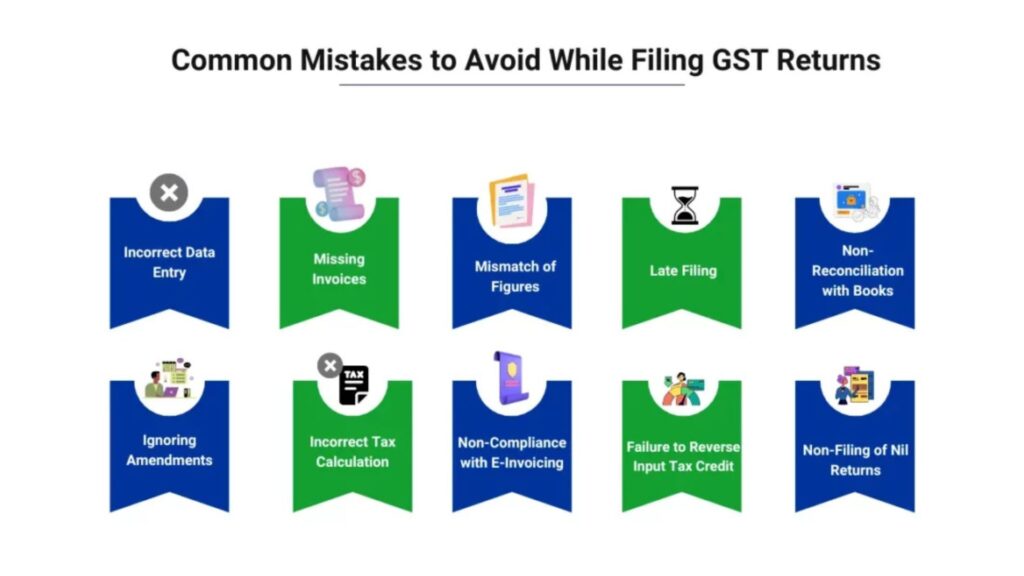Starting a business in India is an exhilarating journey, filled with innovation and the promise of growth. But amidst the excitement, navigating the regulatory landscape, particularly tax compliance, is non-negotiable from day one. For Indian startups, Goods and Services Tax (GST) registration is often a foundational step. While it might initially seem like a hurdle, grasping the essential aspects of GST registration can pave the way for smooth operations and long-term legal standing.
This comprehensive guide demystifies GST registration specifically for startups in India. We’ll break down the crucial elements, from understanding if registration is mandatory to highlighting common pitfalls and providing actionable steps for a successful and compliant business foundation. Let’s ensure your startup launches not just dynamically, but also correctly, with GST compliance at its core.
1. Is GST Registration a Must for Your Startup? Decoding Mandatory Requirements
The first, and most critical question for every startup is: “Do I really need GST registration right now?” In India, GST registration isn’t always automatically mandatory from day one. It hinges on a few key factors, primarily your startup’s aggregate turnover and the nature of your business activities.

- Understanding Turnover Thresholds: Indian GST law sets threshold limits based on your total revenue (aggregate turnover) in a financial year. If your startup’s turnover exceeds these limits, GST registration becomes mandatory. The current thresholds are:
- ₹40 Lakhs (for businesses dealing exclusively in Goods): If your startup is solely involved in the supply of goods and meets specific conditions, the threshold is higher at ₹40 lakhs. Conditions apply; for instance, it does not apply to inter-state supplies or certain notified goods.
- ₹20 Lakhs (for businesses dealing in Services, or Goods and Services): For startups providing services, or a mix of goods and services, the threshold is ₹20 lakhs.
- ₹10 Lakhs (for Special Category States): For startups operating in certain “special category states” (like some northeastern states), these threshold limits are further reduced to ₹10 lakhs for both goods and services.
Accurately Calculate Your Aggregate Turnover: Your “aggregate turnover” isn’t just profit; it’s the total value of all taxable supplies, exempt supplies, exports, and inter-state supplies of a business, calculated on an all-India basis. Project your first-year revenue realistically and assess if you are likely to cross these thresholds.
- Mandatory Registration Categories – No Turnover Limit: Importantly, certain categories of businesses must register for GST regardless of their turnover. For startups, these are especially relevant:
- Inter-State Suppliers: If your startup makes any taxable supply of goods or services across state borders (even a single transaction), GST registration is mandatory, irrespective of turnover. This is crucial for e-commerce businesses or startups planning to serve customers in multiple states.
- E-commerce Operators and Suppliers Selling Through E-commerce Platforms: If you operate an e-commerce platform or sell goods/services through e-commerce operators (like Amazon, Flipkart etc.), GST registration is compulsory. This is because e-commerce transactions often involve inter-state movement and complexities in tax collection.
- Casual Taxable Persons: If your startup is considered a “casual taxable person” – meaning you occasionally undertake taxable supply in a state where you don’t have a fixed place of business – GST registration is required. This could apply to startups participating in trade fairs or pop-up events in other states.
- Non-Resident Taxable Persons: If your startup is owned or controlled by a Non-Resident Indian (NRI) and makes taxable supplies in India, GST registration is mandatory, as explained in previous blogs.
Assess Your Business Nature: Carefully evaluate if your startup falls under any of these mandatory registration categories, irrespective of your projected turnover. If you are involved in inter-state supply or e-commerce, GST registration is likely not optional.
One who does not do any work except to get some benefit from it. Do not be angry with pain in scolding. In happiness he wants to become hairy with pain in the hope that reproduction will not occur. Unless they are blinded by lust, they do not move forward; The culprits are those who abandon their duties and soften their hearts, that is, their hard work.
2. Beyond Mandatory – The Strategic Advantages of Early GST Registration
Even if your startup’s initial turnover is below the mandatory limits, and you don’t fall into a compulsory category, proactively registering for GST voluntarily can offer significant strategic advantages that could benefit your business right from the start, and as you scale.

Unlocking Input Tax Credit (ITC) – Boosting Profitability: One of the biggest benefits of GST registration is the ability to claim Input Tax Credit (ITC). Essentially, you can reduce your GST liability by the amount of GST you’ve already paid on your business purchases and expenses. This ITC can be claimed on:
- Raw materials and inventory purchased.
- Capital goods like machinery and equipment.
- Business services like rent, utilities, marketing, and professional fees.
For Startups Making Initial Investments: Startups often incur significant upfront costs – setting up offices, purchasing equipment, investing in marketing. Voluntary GST registration allows you to claim ITC on these initial investments, significantly reducing your tax outflow and improving your cash flow and profitability, especially in the early stages. This ITC can be a substantial financial advantage.
- Building Business Credibility and Trust – Projecting Professionalism: GST registration adds a layer of credibility and professionalism to your startup in the eyes of customers, suppliers, and potential investors. Being GST registered signals that your business is:
- Legally Compliant: It demonstrates that you are serious about operating within the legal framework of India and adhering to tax regulations.
- Trustworthy and Reliable: It enhances your reputation as a trustworthy business partner for suppliers and a reliable service provider for customers.
- Professional and Established: GST registration can project a more established and professional image, even for a young startup, making you appear more credible and secure.
This enhanced credibility can be particularly valuable for startups looking to build trust with larger businesses, secure contracts, or attract investment.
- Facilitating Seamless Inter-State Business Expansion – Future-Proofing Growth: If your startup has aspirations for expansion beyond your current state, GST registration is crucial for seamless inter-state business. Without GST registration, engaging in inter-state transactions becomes complex and can create compliance hurdles and additional taxes. Early GST registration smooths the path for future expansion by:
- Enabling Easy Interstate Sales and Purchases: GST registration allows you to conduct business seamlessly across state lines without the complexities of the previous tax regime.
- Avoiding Compliance Issues During Expansion: By registering early, you avoid the need to rush into registration when you suddenly decide to expand inter-state, ensuring smooth and compliant growth.
- Preparing for National Market Reach: GST registration is a prerequisite for reaching a truly national market in India.
Even if you are currently focused locally, consider your future growth plans. Early GST registration is a strategic move that prepares your startup for national expansion and market reach.
- Access to Government Schemes and Tenders – Opening Doors to Opportunities: Many government schemes, incentives, and public procurement tenders in India require businesses to be GST registered as a prerequisite for participation. By registering for GST voluntarily, your startup becomes eligible to:
- Access Government Support and Incentives: Many government programs aimed at supporting startups and SMEs require GST registration for availing benefits.
- Participate in Government Tenders: Public sector tenders (government contracts) often mandate GST registration as an eligibility criterion for bidding.
Voluntary GST registration can open doors to government-backed opportunities that might otherwise be inaccessible.
- Avoiding Penalties and Legal Complications – Ensuring Peace of Mind: While you might not be mandatorily required to register right now, proactive GST registration eliminates any risk of inadvertently crossing threshold limits later in the financial year and facing penalties for delayed registration. It provides:
- Peace of Mind Regarding Compliance: You operate knowing you are fully compliant with GST laws from the start, avoiding potential legal headaches and penalties.
- Prevention of Penalties for Delayed Registration: If your turnover unexpectedly surges and crosses the threshold later, you are already registered, avoiding penalties for late registration.
Consider proactive GST registration as a form of “compliance insurance” – offering peace of mind and protecting your startup from potential legal and financial risks down the line..
3. Steering Clear of Startup GST Registration Mistakes – Common Pitfalls and Solutions
The GST registration process, while largely online, can be intricate, and startups, often focused on core business activities, can inadvertently make preventable errors. Here are some of the top mistakes startups make during GST registration and, more importantly, how to avoid them.

- Mistake 1: Delaying Registration Until the Brink of Deadline – The Procrastination Trap
- The Pitfall: Many startups delay GST registration, often waiting until they are just about to cross the turnover threshold or until the absolute last minute they realize registration is mandatory. This procrastination leads to:
- Rushed Applications: A last-minute rush increases the chances of errors in filling forms or uploading documents.
- Increased Stress and Anxiety: Dealing with registration under pressure is stressful for founders.
- Potential Penalties for Delay (If Threshold is Breached Unknowingly): If turnover unexpectedly surges past the threshold before registration, penalties for late registration can apply.
- The Solution: Initiate Registration Well in Advance – Plan Ahead: Don’t wait until the last minute.
- Start Early: Begin the GST registration process well in advance of your anticipated GST liability date, or even proactively soon after launching your startup, especially if you see strategic advantages in early registration.
- Allow Ample Time: Allocate sufficient time to gather documents, understand the process, fill forms accurately, and address any queries that may arise from the GST department.
- Consult Early: If unsure about your GST obligations, consult a tax professional early on to determine your registration needs and initiate the process in a timely manner.
- The Pitfall: Many startups delay GST registration, often waiting until they are just about to cross the turnover threshold or until the absolute last minute they realize registration is mandatory. This procrastination leads to:
- Mistake 2: Providing Inaccurate or Incomplete Information – Sloppy Data Entry
- The Pitfall: Errors in the GST registration application – whether it’s incorrect PAN details, wrong business address, inaccurate nature of business description, or banking details typos – are surprisingly common and can lead to:
- Application Rejection: The GST department may reject applications with significant inaccuracies, causing delays and rework.
- Future Compliance Issues: Incorrect details can lead to mismatches in records, difficulties in claiming ITC, and complications during GST audits later on.
- Communication Errors: Wrong email addresses or mobile numbers will disrupt official communications from the GST department.
- The Solution: Double-Check and Verify Every Detail – Accuracy is Key: Precision is paramount in your GST application.
- Meticulous Data Entry: Fill in every field of the GST registration forms with utmost care and accuracy.
- Cross-Verification: Double-check all entered information against your official documents – PAN card, business registration certificate, bank statements, address proof, etc.
- Review Before Submission: Before final submission, carefully review the entire application form and uploaded documents one last time to catch and correct any errors.
- The Pitfall: Errors in the GST registration application – whether it’s incorrect PAN details, wrong business address, inaccurate nature of business description, or banking details typos – are surprisingly common and can lead to:
- Mistake 3: Ignoring State-Specific GST Nuances – A One-Size-Fits-All Approach
- The Pitfall: While GST is a unified tax system, certain aspects can have state-specific nuances, particularly regarding:
- E-way Bills: Rules and thresholds for generating e-way bills (for goods movement across states and sometimes even within states) can vary slightly between states.
- State-Specific Exemptions (Though Less Common Now): Occasionally, certain state governments may announce specific industry-related exemptions or concessions that need to be understood.
- The Pitfall: While GST is a unified tax system, certain aspects can have state-specific nuances, particularly regarding:
Ignoring these state-specific rules can lead to inadvertent non-compliance when operating in certain states.
- The Solution: Familiarize Yourself with State-Specific Rules – Context Matters: Don’t assume GST rules are completely uniform across India.
- Research Relevant State Rules: If your startup has significant operations in a particular state (e.g., warehousing, manufacturing unit), proactively research and understand any specific GST rules applicable in that state, especially regarding e-way bills and any industry-specific regulations.
- Consult State-Level Tax Professionals: If operating across multiple states, consider consulting with tax professionals who have expertise in GST laws of those specific states to ensure localized compliance.
- Stay Updated: GST rules are subject to changes. Regularly stay updated on any notifications or circulars issued by both the central GST authorities and the state GST departments relevant to your operations.
- Mistake 4: Overlooking the Composition Scheme (If Potentially Eligible) – Missing Simplification
- The Pitfall: Startups, especially in the initial phase, might have turnover below ₹1.5 crore (or ₹75 lakhs for special category states). They might miss out on evaluating the GST Composition Scheme. This scheme is designed for small businesses and offers:
- Simplified Compliance: Fewer GST returns to file (quarterly instead of monthly).
- Lower Tax Rates: A fixed, lower percentage of turnover is payable as tax (e.g., 1% for traders, manufacturers, restaurants).
- The Pitfall: Startups, especially in the initial phase, might have turnover below ₹1.5 crore (or ₹75 lakhs for special category states). They might miss out on evaluating the GST Composition Scheme. This scheme is designed for small businesses and offers:
However, businesses under the Composition Scheme cannot claim Input Tax Credit (ITC). Startups might overlook this scheme, potentially missing out on simplified compliance if ITC benefits are not crucial for their business model.
- The Solution: Evaluate Composition Scheme Eligibility and Suitability – Simplicity vs. ITC: Don’t automatically assume the regular GST scheme is always best.
- Assess Eligibility: Check if your startup meets the eligibility criteria for the Composition Scheme (turnover limits, nature of business, etc.).
- Compare Benefits: Carefully evaluate if the Composition Scheme is beneficial for your specific business model. Consider:
- ITC Needs: If your business has high input taxes (significant purchases), forgoing ITC under the Composition Scheme might be disadvantageous, even with lower tax rates.
- Compliance Simplicity: If compliance burden is a major concern and your input taxes are relatively low, the simplified compliance of the Composition Scheme might be more attractive, despite slightly higher tax outgo in some cases.
- Make an Informed Choice: Make an informed decision between the regular GST scheme and the Composition Scheme based on a balance of compliance simplicity and potential ITC benefits for your startup. Note that certain businesses, like inter-state suppliers, are not eligible for the Composition Scheme.
- Mistake 5: Neglecting Regular GST Compliance Post-Registration – Registration is Just the Beginning
- The Pitfall: Many startups mistakenly believe that once GST registration is obtained, the compliance job is done. Registration is just the first step. Ongoing GST compliance is crucial and includes:
- Regular GST Return Filing: Filing monthly or quarterly GST returns (GSTR-1, GSTR-3B, etc.) based on your registration type and scheme.
- Accurate Record Keeping: Maintaining detailed and organized records of all sales, purchases, expenses, invoices, etc., for GST purposes.
- GST-Compliant Invoicing: Issuing invoices that are fully compliant with GST format requirements, including GSTIN, HSN/SAC codes, tax rates, etc.
- Tax Payments: Making timely GST payments for your tax liability.
- The Pitfall: Many startups mistakenly believe that once GST registration is obtained, the compliance job is done. Registration is just the first step. Ongoing GST compliance is crucial and includes:
Neglecting these post-registration compliances will lead to penalties, interest, and potential legal issues.
- The Solution: Establish Robust GST Compliance Processes – Ongoing Responsibility: GST compliance is an ongoing operational responsibility, not a one-time event.
- Implement Accounting Systems: Set up proper accounting systems and processes from day one
- Key Takeaways and Actionable Steps for Startup GST Registration Success:
To make GST registration and ongoing compliance a smooth and successful journey for your startup, remember these key takeaways and actionable steps:
- Assess Your GST Liability Early and Accurately: Determine if and when GST
registration becomes mandatory, considering both turnover thresholds and mandatory registration categories. Don’t underestimate your potential turnover. * Consider Strategic Advantages of Early Registration: Even if not immediately mandatory, evaluate the strategic benefits of early registration – ITC, credibility, interstate expansion readiness, government scheme access, and peace of mind. * Gather Necessary Documents in Advance: Prepare all required documents (PAN, Aadhaar, business registration proof, bank details, address proof, etc.) well before starting the online process. * Prioritize Accuracy and Verification in Application: Double-check every detail in the GST registration application form for accuracy before submission. Verify against official documents. * Understand State-Specific GST Rules (If Applicable): Be aware of any state-specific nuances in GST rules, especially regarding e-way bills, relevant to your startup’s operating locations. * Evaluate the Composition Scheme (If Eligible): If your turnover is below the threshold, and you are eligible, assess if the Composition Scheme’s simplified compliance outweighs the ITC benefit for your business model. Make an informed choice. * Establish Robust GST Compliance Processes from Day One: Implement systems for GST-compliant invoicing, meticulous record-keeping, and timely GST return filing from the start. Consider using GST software or engaging a tax consultant for ongoing support. * Don’t Hesitate to Seek Professional Guidance: Don’t navigate the complex GST landscape alone, especially if you are unsure. Consult with a qualified tax consultant or Chartered Accountant (CA) for personalized advice and assistance throughout registration and ongoing compliance. * Stay Updated on GST Rules and Changes: GST regulations are subject to updates. Regularly check for notifications and circulars from GST authorities to remain compliant with the latest rules.
Conclusion: GST Compliance – Building a Solid Foundation for Startup Success
GST registration for startups, while demanding attention to detail and a proactive approach, is a manageable and absolutely essential aspect of building a legitimate and thriving business in India. Don’t view GST compliance as a mere regulatory burden. Instead, embrace it as an opportunity to build a robust, credible, and legally sound business foundation ready for sustainable growth in the dynamic Indian market. By understanding the key considerations, avoiding common mistakes, and prioritizing proactive compliance, you can ensure your startup not only launches with dynamism but also operates with legal security and long-term success in mind. GST compliance, done right from the start, is a smart investment in your startup’s future.



